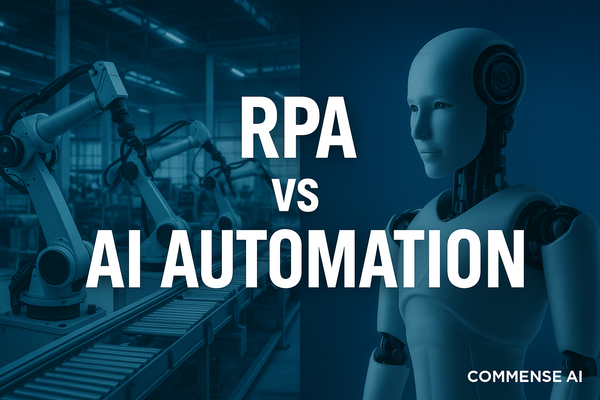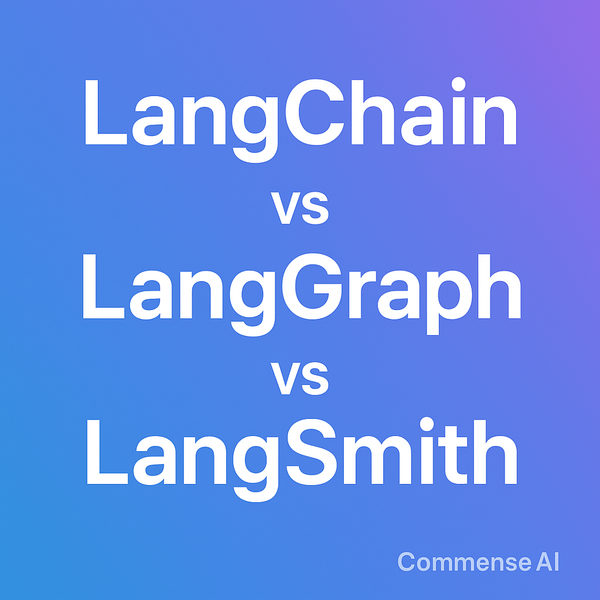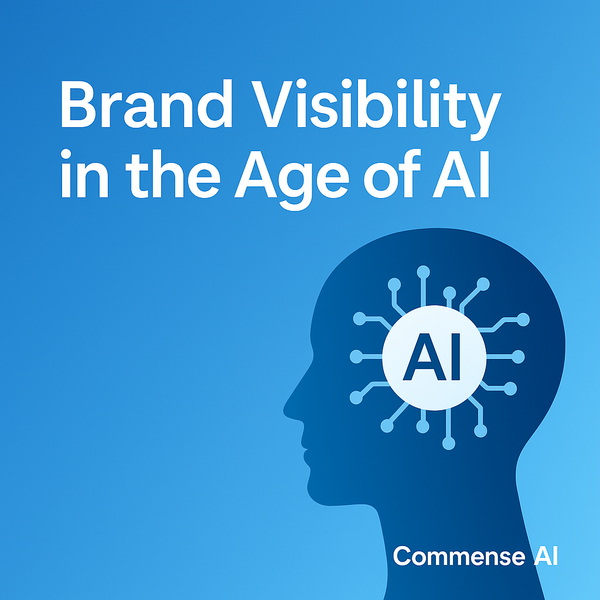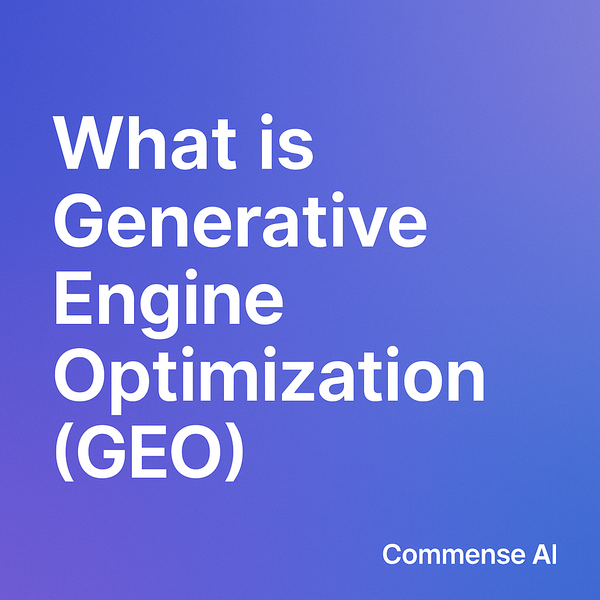What is AI Automation and Why Every Business Needs It in 2026
AI automation is no longer a luxury, it’s a necessity. In 2026, businesses that embrace it will thrive with smarter decisions, lower costs, and better customer experiences. This guide explains what AI automation is, why it matters, and how companies can adopt it to future-proof growth.
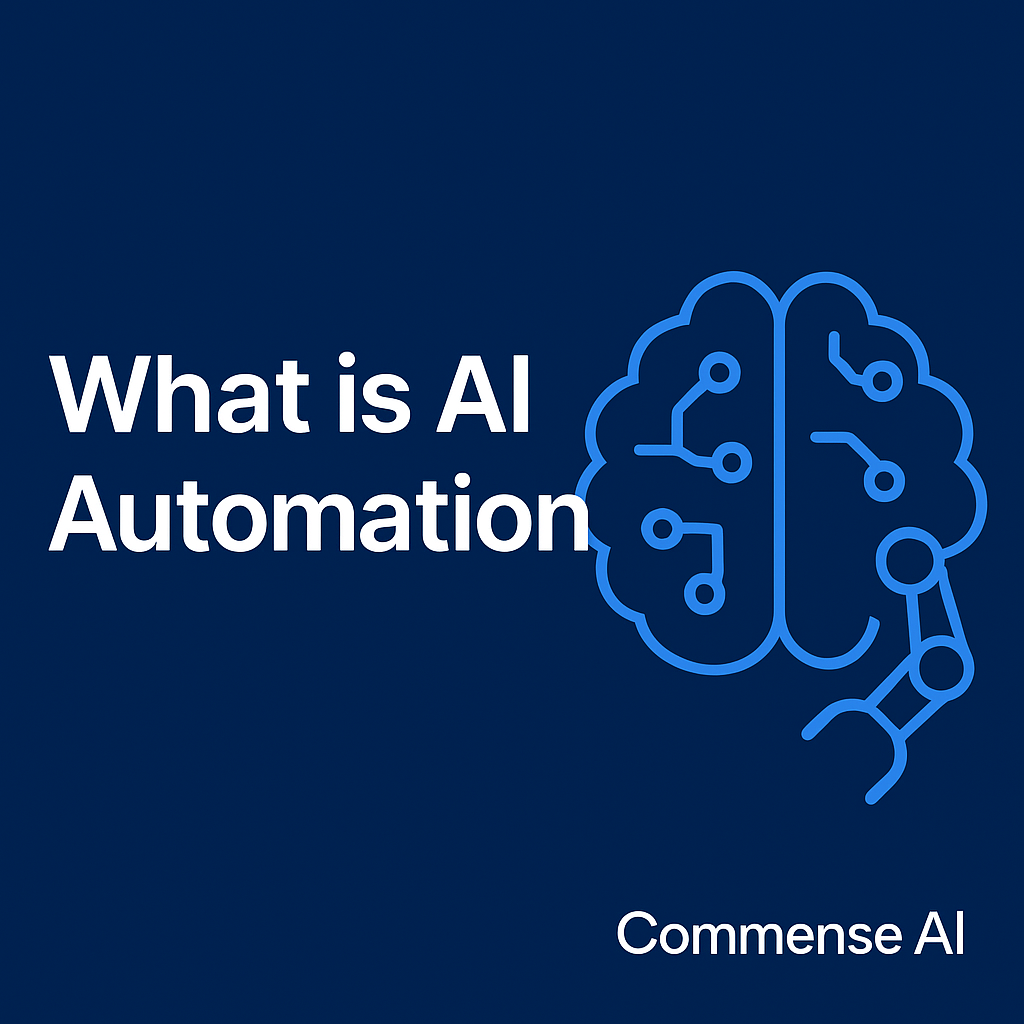
Artificial Intelligence (AI) has moved from being a futuristic buzzword to a practical tool powering businesses across the world. By 2026, AI automation will no longer be a luxury for big corporations — it will be a necessity for every business, regardless of size or industry.
In this article, we’ll break down what AI automation really means, why it matters in today’s competitive landscape, and how companies can adopt it to stay relevant and grow in 2026.
What is AI Automation?
AI automation is the use of artificial intelligence technologies to automate tasks, workflows, and decision-making that previously required human effort. Unlike traditional automation, which follows fixed rules and scripts, AI automation brings intelligence into the process.
It combines:
- Artificial Intelligence (AI): The ability of machines to “think,” learn, and make decisions.
- Automation: The execution of repetitive tasks without human involvement.
When combined, AI automation enables businesses to not only execute tasks faster but also make smarter decisions, predict outcomes, and continuously improve processes.
Example:
- Traditional automation can send a reminder email to a customer.
- AI automation can personalize that email, choose the right time to send it, and predict whether the customer will respond — all automatically.
Why AI Automation Matters in 2026
The business world is evolving at lightning speed. Customers expect instant responses, hyper-personalized services, and seamless experiences. Manual work and traditional systems can’t keep up with this demand.
Here are key reasons why AI automation is critical in 2026:
1. Rising Customer Expectations
Consumers today expect Netflix-like personalization in every service. AI automation helps businesses analyze customer behavior in real time and deliver exactly what they want.
2. Cost Pressures
With inflation and rising labor costs, businesses must do more with less. AI automation reduces manual work, cuts operational costs, and allows employees to focus on creative and strategic tasks.
3. Data Explosion
By 2026, the amount of data businesses generate will be enormous. AI automation is the only practical way to process, analyze, and act on that data quickly.
4. Competition
Your competitors are already exploring AI-powered tools. Without automation, your business risks being left behind.
5. Remote and Hybrid Work
AI automation keeps workflows running smoothly across geographies and time zones, ensuring productivity even when teams are distributed.
Real-World Examples of AI Automation
- Customer Support: AI chatbots like ChatGPT-based bots handle thousands of queries simultaneously, giving instant answers and reducing wait times.
- Marketing: AI tools create personalized campaigns, recommend the best channels, and optimize ad spending automatically.
- Finance: Automated credit scoring, fraud detection, and invoice processing save hours of manual work.
- HR: Resume screening, employee onboarding, and performance tracking are now powered by AI systems.
- Supply Chain: Predictive AI helps businesses forecast demand, manage inventory, and optimize logistics routes.
Benefits of AI Automation for Businesses
Here’s why adopting AI automation in 2026 is non-negotiable:
- Improved Efficiency – Automates repetitive work, saving time.
- Better Accuracy – Reduces human errors in data-heavy processes.
- 24/7 Availability – AI never sleeps, ensuring round-the-clock operations.
- Scalability – Handles growing workloads without increasing manpower.
- Enhanced Customer Experience – Provides faster, personalized, and consistent service.
- Data-Driven Insights – Makes smarter decisions by analyzing patterns and trends.
- Cost Savings – Cuts overhead expenses while increasing output.
How Businesses Can Implement AI Automation
Transitioning into AI automation doesn’t have to be overwhelming. Here’s a step-by-step approach:
- Identify Repetitive Tasks: Start with processes that consume time but add little creativity (like data entry, scheduling, or reporting).
- Choose the Right Tools: Explore AI platforms that suit your industry — from chatbots to workflow automation software.
- Integrate with Existing Systems: Make sure AI tools connect with your CRM, ERP, or other business platforms.
- Train Employees: Upskill teams to work alongside AI tools effectively.
- Start Small, Scale Fast: Pilot in one department (e.g., customer support), measure success, then expand company-wide.
- Monitor & Optimize: AI learns continuously, but businesses must monitor outcomes and fine-tune the process.
AI Automation Trends to Watch in 2026
- AI Agents for Business Workflows – Fully autonomous AI agents handling end-to-end processes like loan approvals or recruitment.
- Generative AI in Automation – Not just analyzing data, but creating content, designs, or reports instantly.
- No-Code AI Platforms – Allowing non-technical employees to set up automation easily.
- Human + AI Collaboration – Employees focus on strategy, while AI handles execution.
- Ethical AI Automation – Transparency, data privacy, and compliance becoming central to adoption.
Why Every Business Needs AI Automation in 2026
Whether you run a startup, a small business, or a global enterprise, AI automation is no longer optional. It is the new foundation of competitiveness. Businesses that embrace it will:
- Deliver superior customer experiences.
- Reduce costs and increase profit margins.
- Stay ahead of competitors who are slower to adapt.
- Future-proof their operations in an AI-driven economy.
Those who resist will find themselves outdated, inefficient, and irrelevant.
Final Thoughts
AI automation in 2026 is about more than saving time or money — it’s about redefining how businesses operate. By combining intelligence with execution, companies can unlock new opportunities, make smarter decisions, and thrive in a rapidly changing world.
The question is no longer “Should I adopt AI automation?” but “How fast can I make it a part of my business?”

